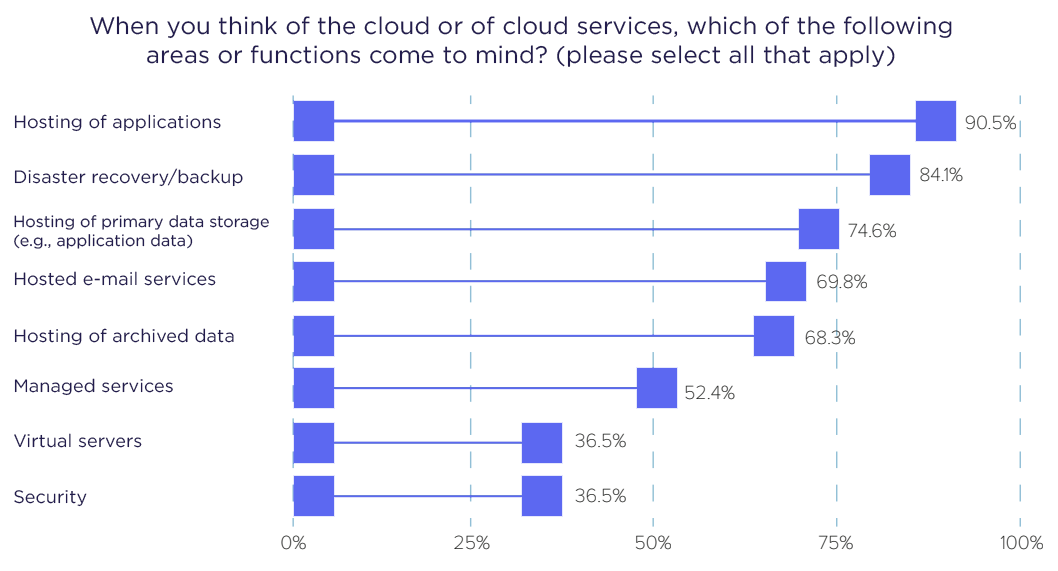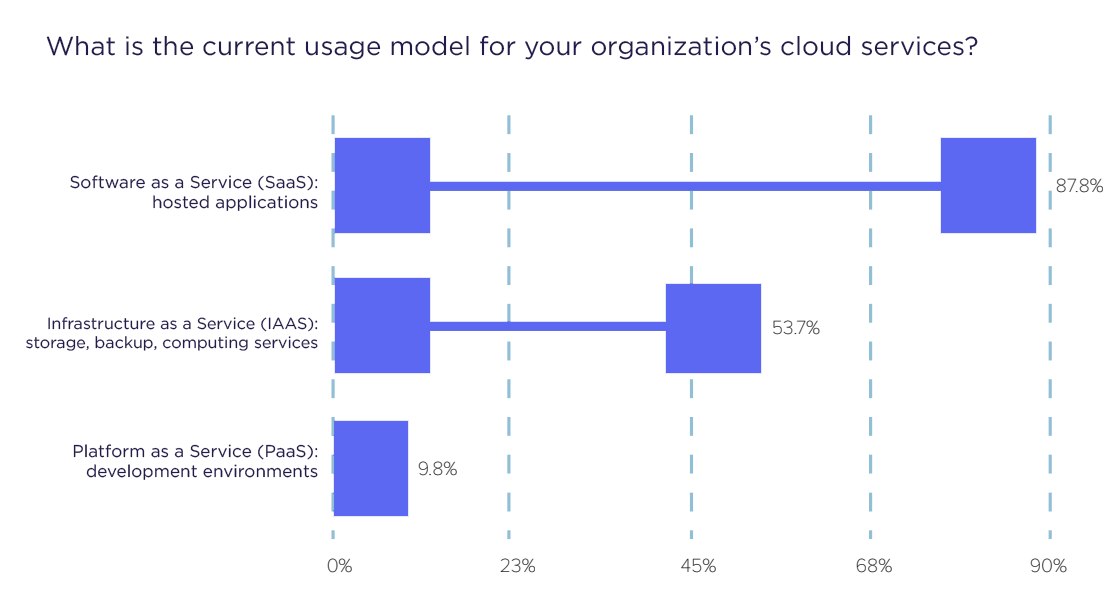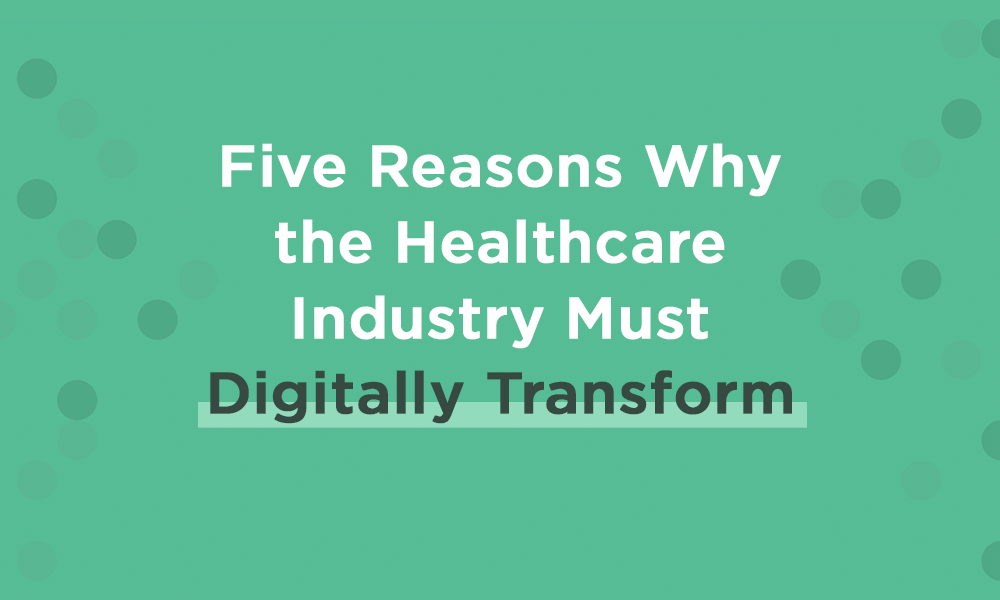Throughout the busy corridors of your local hospital, amidst the ongoing Covid-19 pandemic, which has single-handedly turned healthcare on its head, a quiet revolution is happening.
As the global health crisis forces the healthcare industry into a rethink around patient care and the management of health data, cloud computing is proactively identifying an ever-broadening array of innovative solutions. With the power of the Cloud at their side, hospitals and health practitioners across the globe are leading the latest wave of digital transformation, to improve the quality of care delivery in addition to the resilience and efficiency of their operations.
Certainly, during this period, taking advantage of all the Cloud has to offer simply makes business sense when seeking to address the evolving infrastructure, patient and data demands of the modern healthcare organization.
Addressing the Concerns of the Healthcare Industry
Traditionally, when it comes to adopting new technology, the healthcare industry has treated the Cloud with a certain degree of trepidation. This was perhaps best reflected within HIMSS Analytics’ 2017 Essential Brief on the Cloud:

Interestingly, most respondents associated the Cloud with application hosting, with disaster recovery and backup coming in close behind. Even more remarkably and, indeed, illustrative of one of the main concerns within the healthcare industry, only 36.5% of respondents associated the Cloud, or cloud services, with security. Given that the healthcare industry tends to be hit the hardest when it comes to security – with the average data breach within the industry amounting to $7.13 million – this caution is somewhat warranted.
Though the reluctance of this sector in embracing cloud solutions is arguably due in large part to security, the perceived costliness of investing in cloud solutions may also act as a barrier to a potential transition. This is particularly the case within the healthcare industry, where a great deal of resources may have gone into building data centers and acquiring IT talent.
In other words, healthcare CIOs need to be made aware of how cloud solutions can yield a substantial ROI by increasing the efficiency of vital healthcare processes, for instance, patient record storage. Of course, it is important to note that the utilization of the Cloud can be a gradual process, suited to the pace of the organization (perhaps through a cloud-native approach), without requiring the transfer of entire systems and infrastructure onto the Cloud en masse.
That being said, as advancements in cloud technology continue to erode away the concerns of healthcare leaders, the Cloud is increasingly becoming a more than viable option for businesses looking to enhance their strategies going forward. This has been supported by Gartner’s research on cloud services’ involvement in the healthcare industry. According to the report, security – though still a concern to a certain extent – is no longer significant enough a barrier for healthcare CIOs in terms of deciding whether to go with the Cloud and cloud-related solutions; a notable development following HIMSS Analytics’ findings two years prior.
Five Benefits of the Healthcare Industry Moving to the Cloud
As may be observed from HIMSS Analytics’ findings, healthcare organizations are increasingly turning to cloud-based solutions when it comes to enhancing their business strategies.

The increased adoption of IAAS, according to the aforementioned brief, suggests that the industry is “moving more toward this virtualized resource model to allow for additional flexibility and scalability in a number of areas, such as storage, data backup and computing services”.
With that in mind, here are five reasons why the healthcare industry should give serious consideration to utilizing the power of the Cloud:
1) Superior Security
Addressing the main hurdle to cloud adoption, the objections around the use of cloud services can be effectively tackled, firstly, by considering the sheer gap in resources available to cloud providers, in comparison to the healthcare sector, in relation to the provision of security.
Indeed, according to Vincent Campitelli, an enterprise security specialist, “If you had an on-premise data center run by a competent group of professionals, versus a cloud environment run by a comparable group of professionals natively, you’re going to have a better software security environment in the Cloud than you will on-premise”. This may be attributed to the Cloud’s proactive approach when it comes to keeping up with relevant security and patch updates, of which the public may not always have early access to.
Furthermore, according to a poll conducted by Nominet, over 60% of security professionals believe that cloud environments, compared to on-premise, offer the same or less risk. However, given the recent findings of the 2020 Firemon report – 60% of IT and security professionals expressing concern in terms of their ability in ensuring the security of their organizations’ cloud-based services – one might be inclined to argue that any doubts over the security of the Cloud may mostly revolve around in-house talent and skill gaps.
2) Enhanced Patient Care
Storing healthcare records on the Cloud can effectively centralize critical data, allowing patients and healthcare practitioners greater ease of access. Further to this, where cloud computing can particularly enhance the quality of patient care is in its ability to streamline the process of digital data exchange between healthcare organizations and practitioners.
One area that has been earmarked for future growth, in relation to cloud-based provision of healthcare, is that of IoT – in particular, IoT-enabled, wearable medical devices (in an early stage of development), which can provide health practitioners with invaluable medical data, in real-time, to transform the quality of diagnosis and care. Such is the disruptive nature of IoT, that the global internet of medical things market is expected to experience explosive growth, near quadrupling from $41 billion (2017) to $158 billion by 2022.
3) Elasticity
Given the fluctuating demands faced by healthcare providers and businesses, who may have to react quickly to sudden, large spikes in volumes of data (patient-related or otherwise), the Cloud’s scalability in utilizing additional resources arguably sets it apart from most on-premise systems. As a result, any organization can benefit from the resources required to handle their workflows, however much they fluctuate.
4) ROI and Cost-Efficiency
A major benefit of the Cloud is that businesses do not have to have to expend large amounts of capital on hardware, which means significantly reduced data storage costs. The potential shift of face-to-face medical interactions to telemedicine platforms has been identified as one other area within which healthcare organizations could cut costs. Indeed, as the Covid-19 pandemic continues to escalate across the globe, cloud-based telemedicine platforms could provide a more than feasible solution to saving resources and managing patient workloads.
As has been previously illustrated, VUSE has experience in delivering solutions – be it via a cloud migration or the utilization of microservices architecture – that cut operational costs while also enhancing the efficiency of your services, thus leading to a greater ROI.
5) Democratization of Data
The healthcare industry’s move to the Cloud can have the added benefit of democratizing data for patients through the simple archiving and retrieval of, for instance, health records, stored on the Cloud. This is particularly significant, given prior research indicates that patients are ‘overwhelmingly’ in favor of easy access to their health records.
Further to this, it may be argued that the democratization of data would, as many have speculated, lead to more informed decision-making on the part of the patient (as well as the health practitioner) by increasingly engaging them in the medical process, as aided by the ease of data access and storage that the Cloud can provide.
Is your organization cloud-ready? Contact VUSE to find out how we can accelerate your digital transformation today!


